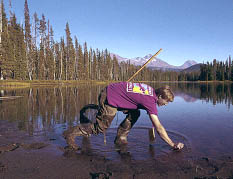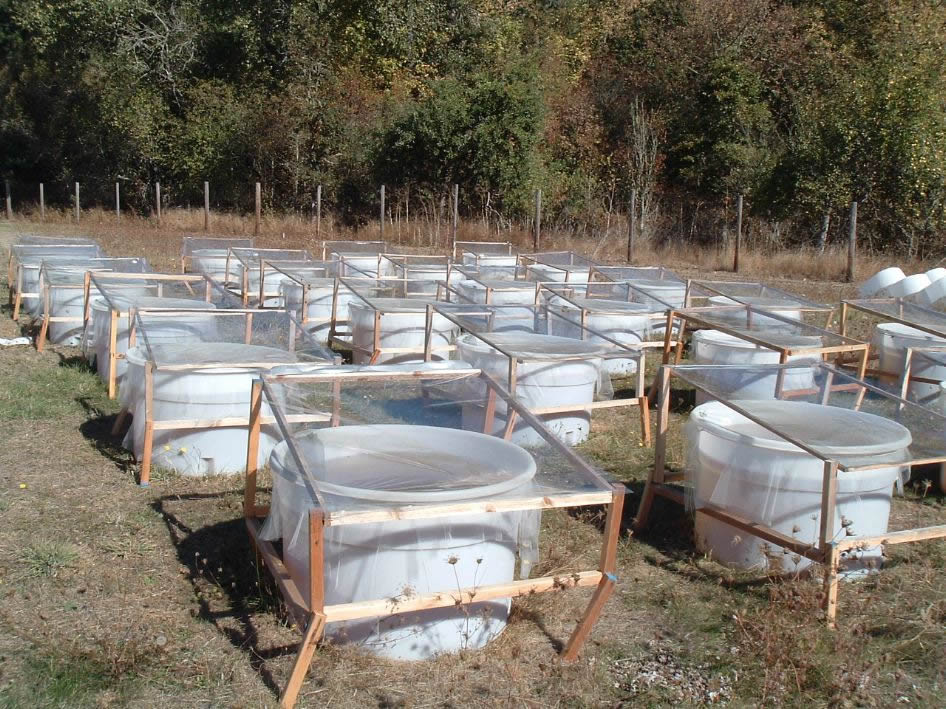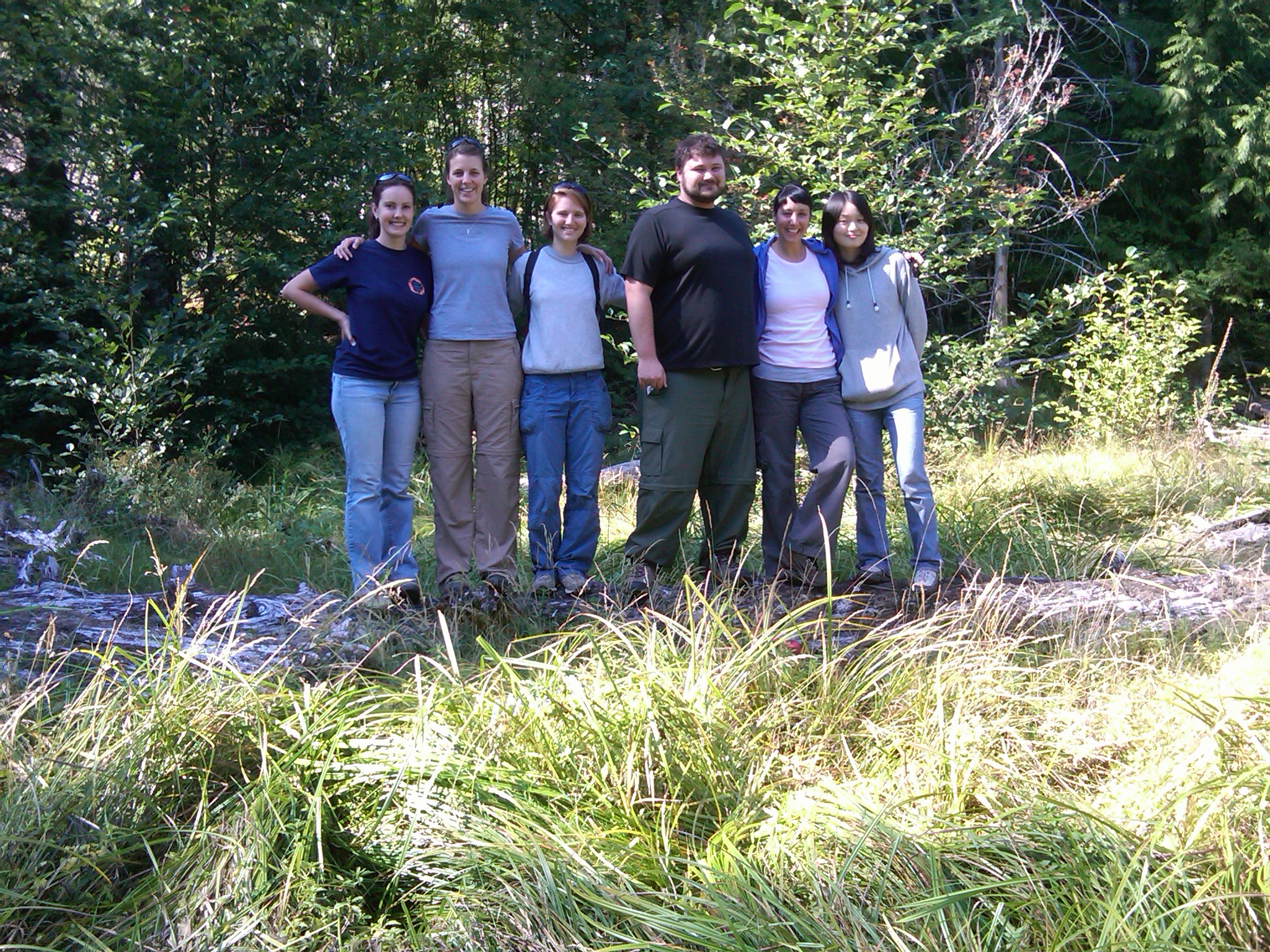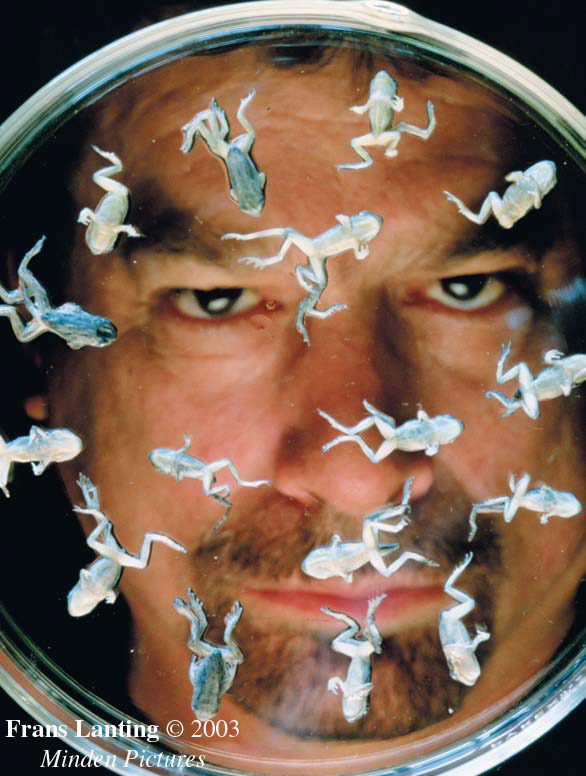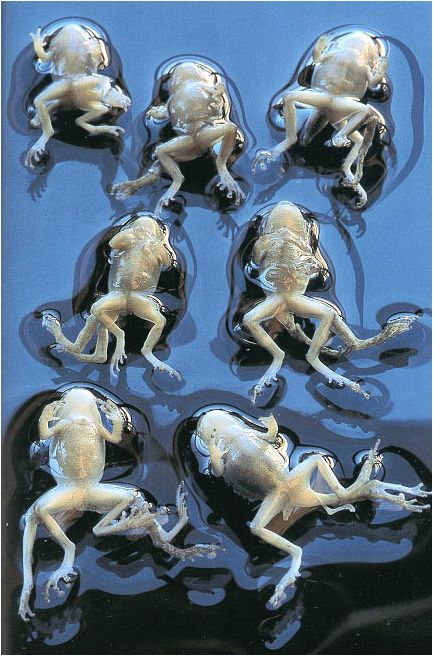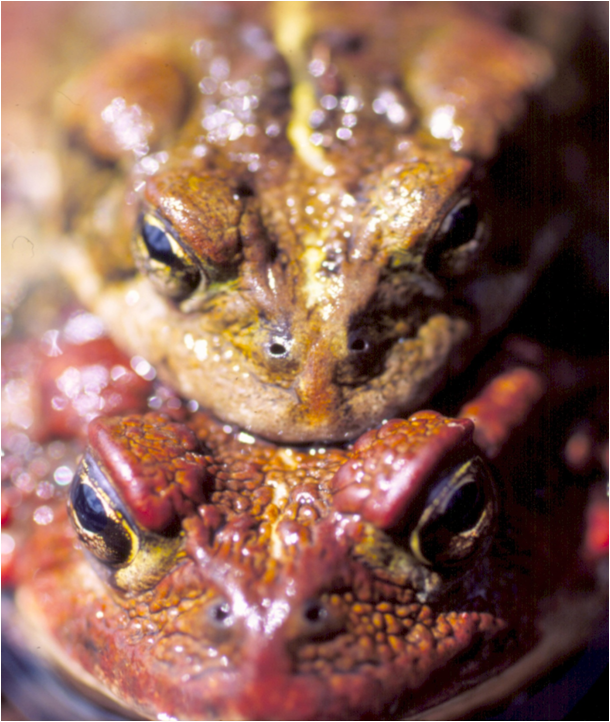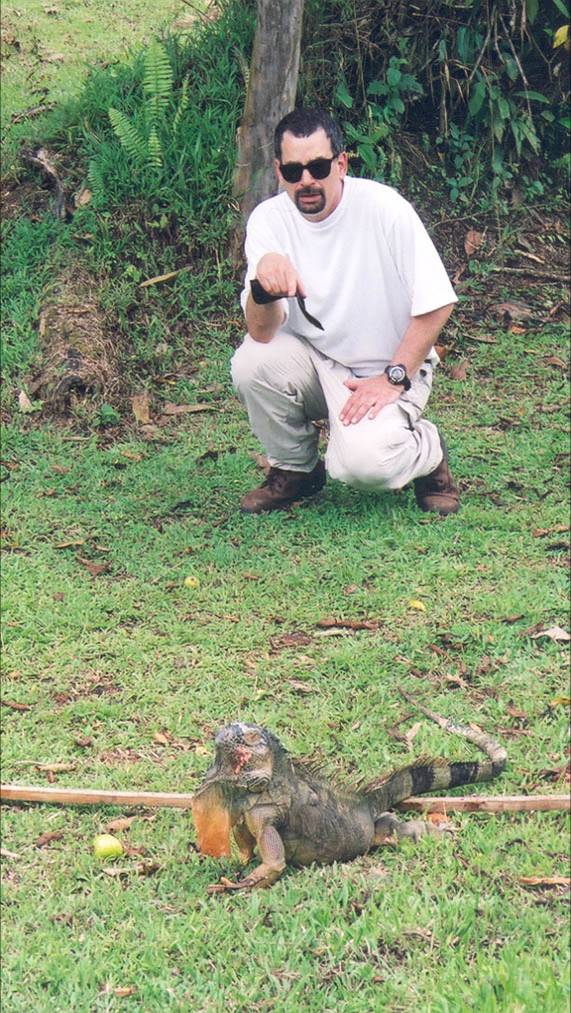|
||||||
Amphibian
Population Declines:
Since the early 1990s, we have been involved in assessing the significance of declining amphibian populations. We have investigated this problem from several angles. We are monitoring populations on a long-term basis. We are investigating specific causes for the declines and we are synthesizing data from various projects. Specifically, we have looked at invasive species and their effects on amphibians, the spread of diseases, the role of environmental contamination and the effects of ultraviolet (UV) radiation. We are also concerned with how various agents may interact with one another to affect amphibian populations. WE DO NOT BELIEVE THAT THERE IS ONE SINGLE CAUSE FOR AMPHIBIAN POPULATION DECLINES. In fact, it is obvious that there are many factors that contribute to amphibian population declines. This depends upon the species, the region and the environmental conditions, among other things. Please see our Representative Publications (on this Web page) to see how our laboratory views the complex nature of amphibian population declines. We take several approaches to investigate amphibian population declines and extinctions. These include taking observations in the field and using laboratory, field and mesocosm experiments.
|
||||||
Host-Pathogen
Biology:
Host-pathogen
systems are ideal for answering many key questions in ecology and
evolutionary biology and I have conducted several research projects
in this area. Host-pathogen systems
have been part of my research program since I was a graduate student,
and they are an important study area to me and my students today.
Papers I wrote in the 1980s represent
some of my early conceptual/theoretical work on host-parasite and
species diversity relationships.
I have also conducted more empirical studies on host-pathogen
systems. Several of my
doctoral students have worked on host-pathogen relationships from
ecological perspectives. These
students have investigated the effects of parasites on host behavior,
how parasites regulate populations of small mammals, and the effects
of pathogens on amphibian populations. As part of this research, we
have been investigating the role of flatworms in causing amphibian
limb deformities. Recent
papers co-authored with Pieter Johnson (
We are heavily involved in studying the effects of the newly emerging infectious fungus, Batrachochytrium, on amphibians. Along with colleagues from several universities, we have been studying the effects of this fungus on larval and newly metamorphosed amphibians of various species. We are also investigating how this fungus may interact with other environmental variables such as UV-B radiation, contaminants and other environmental agents.
|
||||||
Behavior:Our laboratory has always been involved in studies of Animal Behavior. Although our primary subjects of our behavior studies are amphibians, we have also conducted studies involving small mammals and invertebrates. We are interested in social behavior, reproductive behavior, and the evolution of behavior and many of the publications from our lab reflect those interests. We have also investigated various aspects of amphibian chemical ecology and how behavior relates to Conservation Biology and Disease Ecology. These areas of behavior are of prime interest to members of my laboratory. |
||||||
Although most of our work is done in the Pacific Northwest, some of our work is done in the tropics.
|
